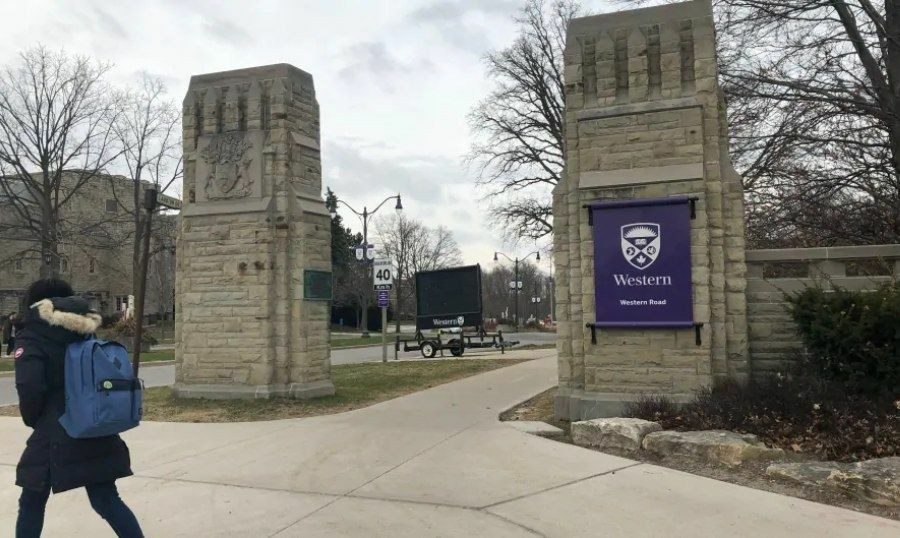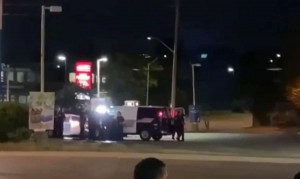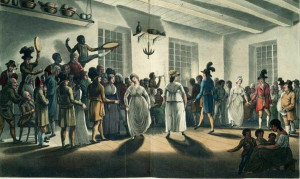But former Black students of Western University claim that the university’s latest anti-racism statements and apologies regarding the provocative work of late psychology professor J. Phillipe Rushton are not concrete enough to mend the harm he caused. Rushton spewed racist ideology through his teaching and published research during his tenure at Western from 1977 to 2012. He made direct links between race and intelligence, adding credence to the concept of white genetic superiority. The university only condemned his work after his death. Most recently, the department of psychology released a statement acknowledging that Rushton's work is "deeply flawed from a scientific standpoint" and that his legacy "shows that the impact of flawed science lingers on, even after qualified scholars have condemned its scientific integrity." However, Black at Western Alumni, a group of former Black students who attended Western in the 1980s and the 1990s while Rushton was a professor, says the statement is lukewarm at best because it has no call to action.
The group has released their own statement to challenge this and to call for concrete actions that will transform the Black student experience away from what it was 30 years ago.
The daily life experience was almost unreal
Rushton’s racist agenda didn’t stop at the research. It was present in the teaching, the debating he did on national television and the silencing tactics he used on students. While he stopped teaching in the 1990s, his tenure enabled him to, according to the Western Department of Psychology, “conduct racist and flawed studies, sometimes without appropriate ethics approval, for more than two decades.” His research was heavily supported by the Pioneer Fund, a foundation that has promoted eugenics and racism since its formation in 1937. In fact, Rushton was the head of the foundation from 2002-2012.
Laura Williams, like the rest of the Black at Western Alumni group, has had to live with the legacy and cruel impact of Rushton’s racism for over 30 years. “It’s been triggering. It was so egregious what we endured during that time,” says the former political science major. “We had to defend and legitimize ourselves [on a daily basis].”
Black students are often expected to normalize these experiences as pre-requisites for a safe, happy and exciting university experience. This looks like trying to ignore the daily microaggressions, hiding the pain and understating the toll it takes on self-esteem, confidence and a sense of belonging that universities are supposed to support. Williams recalls the price of this toll: “Daily, how can you not feel anything short of being less than and feeling like you have to defend your intelligence on a university campus? It was really tough for Black students – people dropped out, people shortened their programs, people had severe mental health impacts, which are persistent to this day. It was wrong that we had to endure that and it was wrong that the university did not do anything to intervene or to ultimately take any accountability for that wrong and the impact of that wrong on us as students.”
Absent from Western’s statements is the acknowledgment of this defense Williams speaks of. Rather, one details the “flawed” nature of Rushton’s work that suggests it is worthy of such engagement and the other names his research as divisive and controversial as if there is merit to it. Williams says that the statements “miss the mark” in large part because of this failure to explicitly condemn Rushton’s work.
30 years later and nothing has changed
There is an eerie line between current and former Black students’ respective experiences at Western. The 24 recommendations by the Anti-Racism Working Group at Western and subsequent statements came after a Black student was attacked last year for calling out her white professor for saying the N-word. Western’s statements came after a questionable acknowledgment of the harm Rushton caused. These similarities are no clearer than on the Black at Western Alumni’s Instagram page. There are numerous stories spanning three decades that demonstrate how deeply entrenched racism is on campus. One such story describes how four white students mocked Black Lives Matter in a photo posted to Instagram where they held up a “Western Lives Matter’ banner. School officials called it “repugnant” but no one was disciplined. The university claimed that the banner did not break the code of conduct.
“We’ve heard from students who are there and it’s like 30 years later, nothing has changed,” said Samantha Morrison of the Alumni group. She recalls a similar response from Western when she and her fellow Black classmates tried to raise their concerns about anti-Black racism and Rushton’s research. “We did report it and no one listened,” says Morrison, who was a psychology major at the time Rushton was teaching. “We had no place to go. I didn’t have the language back then that I do now to move this forward. I didn’t have the support of my white classmates. Everyone should’ve been outraged. But not everyone was, just the Black students and a few other students.”
Instead, they were threatened with expulsion and suspension for continued protests. The Alumni group even brought a reluctant David Suzuki to the university in 1989 to garner support for Rushton’s resignation, since faculty remained silent on the issue. Rushton continued his work at Western University and the university defended him and his research under the principle of academic freedom. “It was very painful. I would see Rushton in the classrooms I was in, and it would disarm me,” says Morrison. The experience was so traumatizing that Morrison left the country. “I wrote my last exam and moved to the United States that same day. I just needed to get away. I had to heal and find a new way. I had to disassociate myself from it.”
Discussions about Canadian racism are usually full of questions about the existence of racism in the country. The United States is often propped up as a naughty example of a racist state, followed by claims about how Canada values immigration, multiculturalism, diversity and inclusion. However, unlike American academic institutions, Canadian ones do not collect data on an ongoing, consistent basis that show a clear picture of Black students’ experiences. What is known is that the odds against Black students – academic streaming, suspension, targeted harassment, racist social events and more – are high. Morrison considers herself lucky.
“I made it. It was tough. It took my entire heart to get through. There is no data to tell us who did not make it. And I know there were a lot of people who did not make it, did not get their degrees during that period of time. There’s no data to tell us.”
Academic freedom does not come without social responsibility
The Black at Western Alumni students have been met with silence for over 30 years. While that silence didn’t stop Rushton from being published and validated, it did stop many of his Black students from having a positive university experience. While both former students have thrived in their respective careers, both Williams and Morrison will never forget the endless danger zones that Rushton’s research produced.
For Williams, the racism she faced forced her to learn how deeply entrenched racism is at such a young age. “It hypersensitized me to what it looks like and what it can feel like and, most profoundly, what it can do to the individual psyche and the sense of self and the overall esteem and progression in one’s life.” According to Morrison, Rushton’s research, which made dubious links between race and promiscuity, made some of her female classmates “afraid that men on campus would think that they [Black women] were more promiscuous, that the fear would manifest. You’re supposed to be going to college to learn academically and socially but if you have this fear, what does that do to you and how does that shape you during this time?”
Far too many Black students can answer this question.
For Black students to thrive at all education levels, there has to be recognition and a concrete plan of action that produces new, safe and better experiences for Black students now and in the future. Canadian universities cannot and should not remove themselves from the equation of racism on their campuses. Western University was complicit in providing a home to Rushton’s academic career at the expense of the safety and wellbeing of Black students.
To create concrete change, the group wants the university to fully commit to and implement its 13 recommendations. The group has since spoken with the university’s senior staff and has started a petition to help ensure the school moves forward in these discussions. “We’re going to be relentless in ensuring that Western course corrects the history and its complicity in the harm that was done 30 years ago and continues to this day,” says Williams. Black at Western Alumni’s effort is for current, future, and the unknown Black students who have suffered in silence for too long.
“This is for the students who didn’t make it and may not have the support to get through. Shame on Western for that,” says Morrison. “Young people want to go somewhere that’s inviting academically and socially and I’m not sure that Black students want to go [to Western] right now. I’m sure the university wants to change that.”
Jean Boampong is a freelance Communications Specialist based in Toronto. She has a background in curriculum design, media literacy and education technology. Her mission is to help organizations and companies in the education sector to build their platforms, enhance their presence and, ultimately, tell their stories. Find her at jeanboampong.com.





